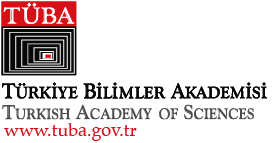The term and notion of “sustainability” are deeply popular but are nonetheless surrounded by ambiguity and confusion in terms of meaning, implications, and boundaries. The Brundtland Report (also known as Our Common Future), published in 1987, describes sustainable development as “development that addresses current needs without jeopardizing future generations’ capacity to fulfill their own needs.” Currently, the term “sustainability” is broadly applied to characterize improvements in areas such as the overexploitation of natural resources, harmful business and industrial manufacturing, inefficient energy usage and polluting by-products, as well as the linear consumption of products, quality of individual lifestyle, consumer buying behavior, technological development or shifts in businesses practices and institutions. Sustainability also often refers to the mechanisms and activities, which help mitigate and counteract degradation and depletion of natural resources to sustain an ecological equilibrium without lowering the quality of life in contemporary societies. Sustainability is informed by a variety of fields, domains, and disciplines, including politics, economics, and philosophy, as well as social sciences and hard sciences.
Sustainability is associated with three overlapping sectors: the economy, society, and the environment, and hence, emphasizes the concept’s simultaneous economic, environmental, and social dimensions. In 2015, the United Nations published “Transforming our world: the 2030 Agenda for Sustainable Development”, a “plan of action for people, planet and prosperity.” The publication outlines 17 Sustainable Development Goals and 169 targets, seeking to build on previous efforts by outlining a 15-year agenda that balances “the three dimensions of sustainable development: the economic, social and environmental”. The document lays out 17 Sustainable Development Goals and 169 priorities, aiming to expand on past strategies by laying out a 15-year plan those balances “the three dimensions of sustainable development: the economic, social, and environmental.” Both the configuration of the concept of sustainability and recognition of the diversity of associated perspectives and interpretations affect our approach and implementation of sustainable development, both locally and globally. The idea of sustainability reveals the necessity for contextual re-definition, re-interpretation, and adaptation in multiple sectors and fields, across varying historical and socio-cultural contexts, while also mandating the incorporation of related worldviews, ethical systems, civilizational outlook; all contributing to new original knowledge for the best interest and wellbeing of humankind and our planet.
The first symposium on “Understanding Sustainability” series was on “Circular Economy”. Theme of 2022 is decided as “Business Organizations and Philanthropic Institutions”. This symposium aims at contributing to the understanding and definition of sustainability in the context of business and civil society organizations, cooperatives, commercial entities, and Waqf (Islamic endowments). Particularly, it looks at how and to what extent the aforementioned actors are able to effectively drive and fulfill the goals of sustainability. This includes the mechanisms through which they incorporate, internalize, and operationalize values and ethics to produce ecological balance, social harmony and just societies. Critically, the symposium also asks in what ways do we learn from the actual practices, experiences and contributions of firms, commercial entities, and organizations to advance more holistic discourse of sustainability. Moreover, the symposium also addresses the question of how to effectively or better engage commercial and civil society actors within a framework that furthers the agenda of sustainability and SDGs in the 21st century.
Important dates:
- Early abstract deadline: 30 October 2021
- Announcement of accepted abstracts: 15 November 2021
- Final abstract deadline: 15 December 2021
- Announcement of accepted abstracts: 25 December 2021
- Deadline for full paper submission: 15 April 2022
- Symposium date: 20-22 May 2022
For more information, check the symposium's official website.


